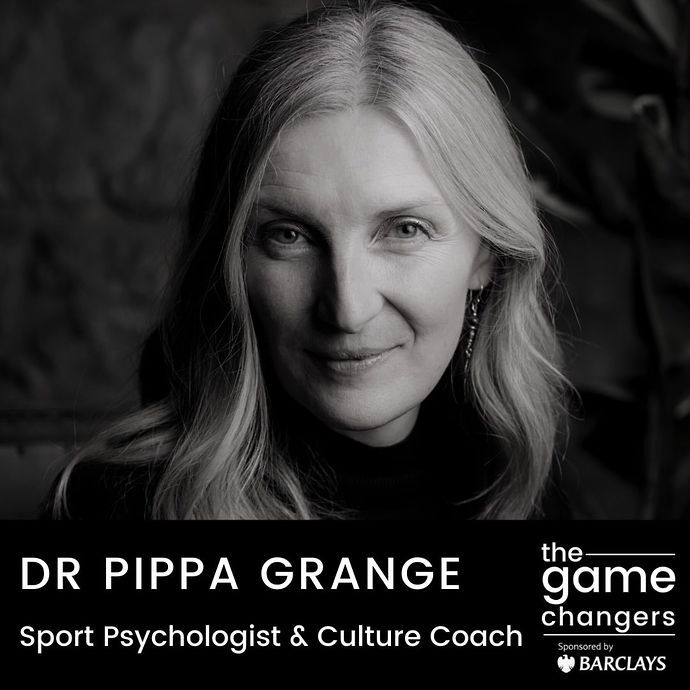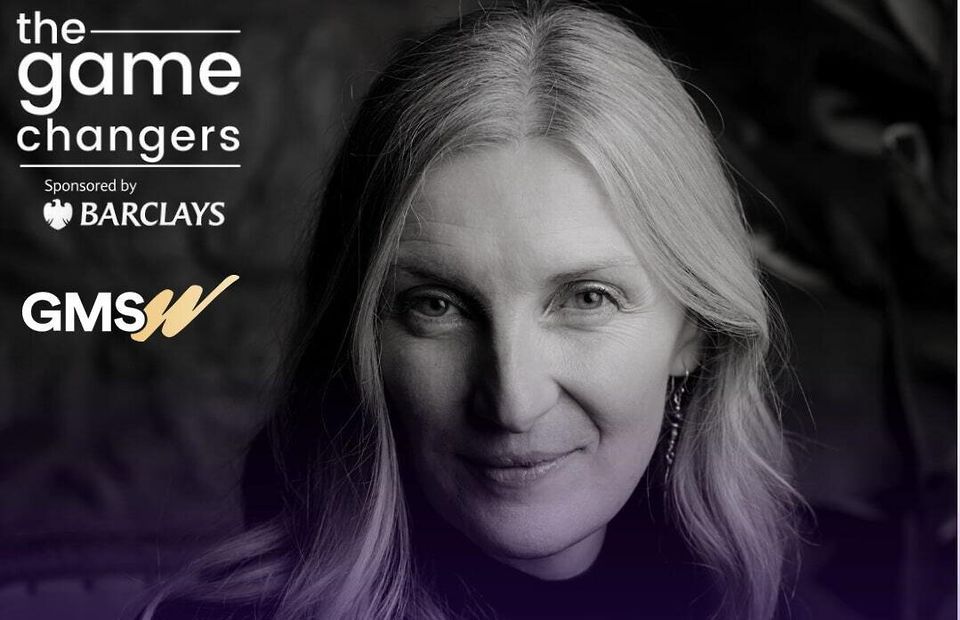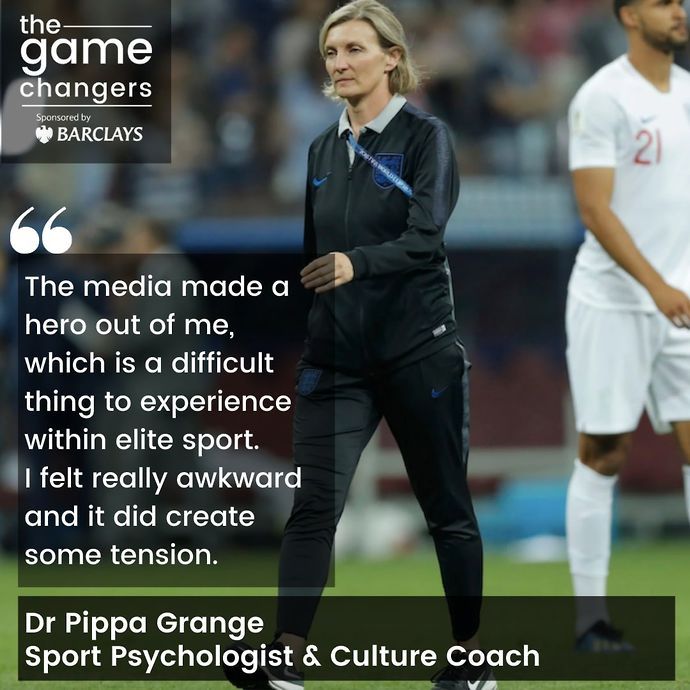This week’s game changers podcast features Pippa Grange, the influential sports psychologist and culture coach. In a wide-ranging discussion, Grange explains how she works to change the culture of sports historically steeped in bravado and hyper-masculinity.Grange is well-known for her time as head of people and team development at the FA, but she has occupied a number of roles around the world during her career. Her path into sports psychology was an unusual one, partly a result of a tumultuous upbringing.Grange’s stepfather was an alcoholic, which led to the breakdown of his relationship with Grange’s mother. She then entered into another relationship, this time with an abusive partner.“It's very complex stuff, but what you feel as a teenager is angry, and abandoned, and confused,” Grange explained. “And, you know, I think what happened for me at that point was I just became fierce and bold, but in a way that was about rejecting the status quo and being sort of determined to forge my own path.“I was sort of generally annoyed with life, you know, and it served as a reasonable motivator for survival, at that point of time. But, I've learned subsequently that's not the best place to place that sort of energy. It was a mess. And I left home at 16. Couch-surfed for a bit. I was sort of officially homeless for a little bit. And I thought, well, this isn't going to work out.” Grange balanced five jobs but was eventually pulled back to education, completing a BTEC in leisure at a college in York. On the course, Grange met a “brilliant” teacher who convinced her to go to university.“That was a radical idea for me,” said Grange. “Nobody in my family had ever been to university. And it just wasn't anything I've thought about, but I got excited by it. She helped me apply to various universities and Loughborough accepted me. And it was like, you know, the world had opened up, I thought that I arrived at that point.”Once at Loughborough, Grange studied sports science and social science with an emphasis on psychology. She described how she was “completely immersed” in different environments and found a number of “anchors” from her studies and playing basketball.After graduating and taking a year out to travel, Grange spent time in a sports development role in Stockport. The company she worked for was Australian, and she was soon offered the same role in Adelaide.According to Grange, “one thing led to another” and she built a life in Australia, finding her way into sports psychology and doctoral studies in Melbourne. She was eventually appointed general manager of culture and leadership of the Australian Football League Players Association. Grange spoke about entering the hyper masculine environment of Aussie Rules and attempting to change such a culture.
Grange balanced five jobs but was eventually pulled back to education, completing a BTEC in leisure at a college in York. On the course, Grange met a “brilliant” teacher who convinced her to go to university.“That was a radical idea for me,” said Grange. “Nobody in my family had ever been to university. And it just wasn't anything I've thought about, but I got excited by it. She helped me apply to various universities and Loughborough accepted me. And it was like, you know, the world had opened up, I thought that I arrived at that point.”Once at Loughborough, Grange studied sports science and social science with an emphasis on psychology. She described how she was “completely immersed” in different environments and found a number of “anchors” from her studies and playing basketball.After graduating and taking a year out to travel, Grange spent time in a sports development role in Stockport. The company she worked for was Australian, and she was soon offered the same role in Adelaide.According to Grange, “one thing led to another” and she built a life in Australia, finding her way into sports psychology and doctoral studies in Melbourne. She was eventually appointed general manager of culture and leadership of the Australian Football League Players Association. Grange spoke about entering the hyper masculine environment of Aussie Rules and attempting to change such a culture.
You would walk into a room of 40 something guys, with arms folded looking at you like, ‘What is she talking about?’ Many times. But I think I had conviction about what I was talking about.
“And the other thing I know for sure, working with many, many young male athletes over time, is that the way they are in the room talking one-on-one is very different to the way they are in the group and the locker room, as they say.
“So I always found that when they got through the door and you had a very human trusting conversation with them, that they didn't bring bravado and machismo and all the rest. They, you know, they wanted to talk about stuff. They might not show that publicly, that took much longer to break down some of those hyper-masculine stereotypes.
“But, you know, the truth of the matter is, especially around mental health, people are hurting. So we use the angle often of what would you want this to be for your mate, who's sitting next to you? If you don't feel comfortable talking about it yourself, can you talk about it for him?”
Grange went on to discuss how she took up the position with the FA, where she was responsible for developing the psychological resilience of the English national team players. Her initial reaction to the job offer was not positive.
“I had a call from David Slemen at Elite Performance Partners, saying, you know, we have a client who's interested in a psychologist… I said to him, at the time, I'm not really interested in a hands-on psych job, you know, pitch-side, poolside anymore. I felt like I'd done that kind of thing. And it's a particular lifestyle, you know, to be on camps or at games all the time.
“I kind of felt like I wasn't, that's not where it was, but I kept talking to him and, you know, we got further and further, and he could tell me who the client was. And he told me, you know, the FA in England. And my immediate impression was like, ‘Oh God, no!’.
The negative initial reaction was a result of the FA’s “terrible external reputation”, but Grange was soon convinced to take up the role.
“Actually the more you explored internally, there'd been some really great work done by people like Dan Ashworth and Dave Reddin and a number of others around the place,” she revealed. “Matt Crocker had done good work on restructuring and revisioning what it could look like. And they had a really strong understanding about the missing piece in culture and people. So, you know, I kind of got swayed into it.”
Grange’s time at the FA encompassed the men’s World Cup in 2018. During the tournament, England defeated Colombia on penalties in the round of 16 and eventually reached the semi-finals. Grange was credited with helping England overcome previous shoot-out demons, but she admitted she did not enjoy the media focus in the aftermath of the event.
“I look back at that now and you know, the external world imagines this kind of guru out the front, doing some kind of mind trickery to help somebody take penalties. It's the tiniest piece. I did a lot of work with the coach and the staff group, and I did a lot of work to keep the conditions possible for the way it transpired. And to bring different energies into camp.
So, you know, I felt really weird at the end of that because the media had made a hero out of me, which is a difficult thing to experience within an elite sport, and I felt really awkward about that.
"And I think it did create some tension. I never said a word through the whole thing.”
As the interview came to an end, Grange was asked what advice she would give to a woman seeking a role in leadership. She cited New Zealand Prime Minister Jacinda Ardern and Chelsea manager Emma Hayes as role models to look up to.
“Dominance, I think, is the one that we can kick to the curb,” Grange explained. “Ideas of dominance and comparison are the draining, exhausting, not very useful things that are part of leadership, that we have to conquer and dominate the other.
“But I think that Jacinda Ardern, you know, we might look closer to home, and Emma Hayes as a coach as well, she's got authority. She's got credibility. I would do what she told me. And it's not just because she shows up with charisma and compassion. It’s what you add from that original classic kind of outdated archetype. How do you bring those other things?”
This article was produced in partnership with the game changers podcast, which is supported by Barclays. You can listen to the full episode with Pippa Grange here.















